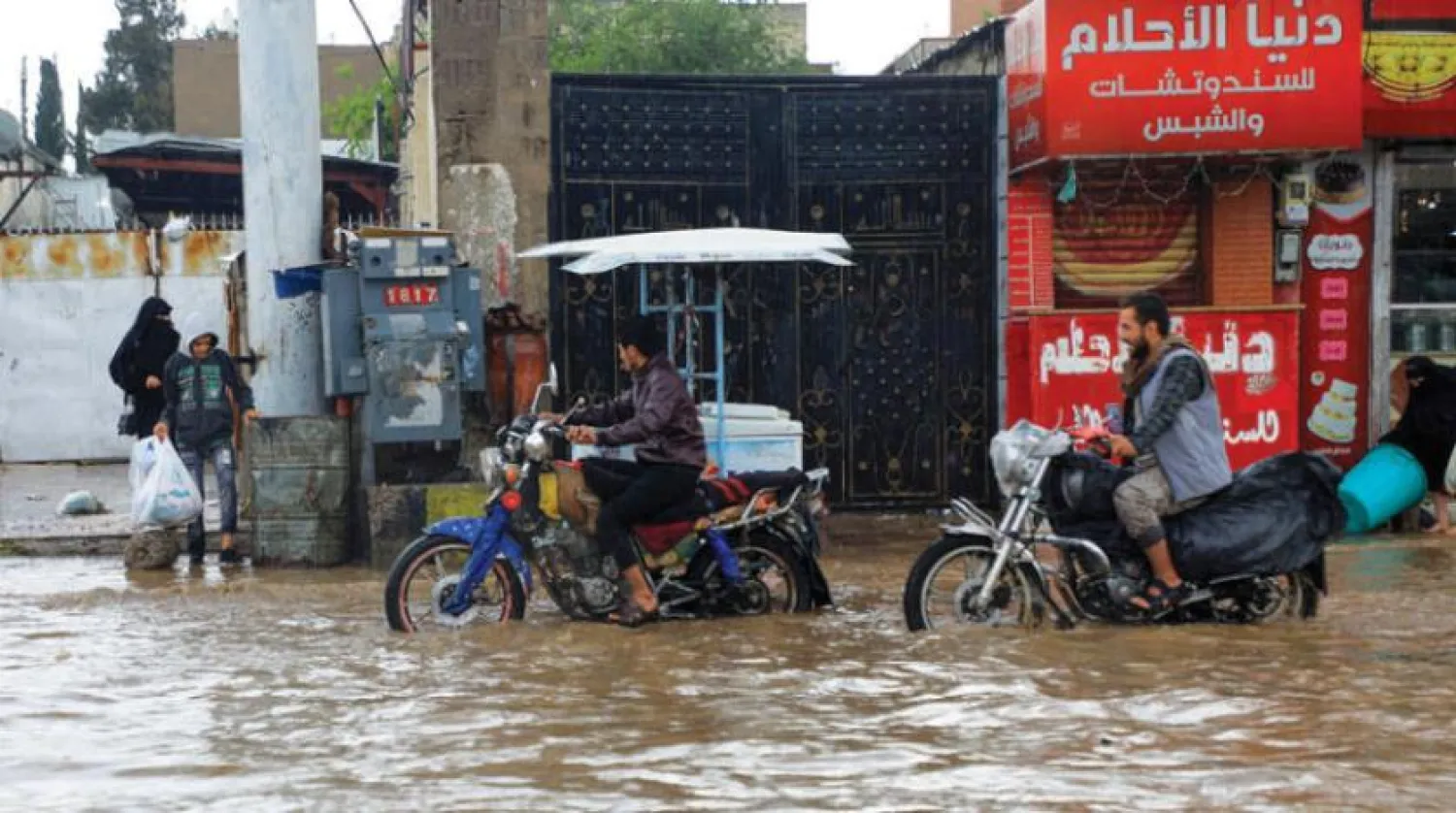Much of Yemen’s Highlands should brace for deadlier downpours and floods in the coming week, the UN Food and Agricultural Organization (FAO) said in a agrometeorological early warning bulletin it released Monday.
FAO also said the return of the Saif rainy season was with a rough start as storms flooded out streets in Sanaa, Al-Mahwit, Dhamar, Amran, Hajjah, Raymah, Ibb, Saadah, Taiz, Hadramaut, and Marib governorates.
According to the bulletin, field reports indicate that as flood water swept away critical infrastructure, 31 households were affected in Al-Haraziyah Al-Uliyah, and Al-Sufllah sub-districts of Salah district in Taiz governorate.
Overall, more than 9,000 families have been affected by floods across the country since the latter half of March.
The bulletin said that forecasts until mid-April favor the formation of heavy rainfall with a risk of major flooding.
Therefore, it warned that the stormy weather that has been disrupting livelihoods after leaving thousands of people across the country cut off from shelter, clean water, sanitation, and basic infrastructure on its way to the wreckage is expected to continue.
“Nearly all the flood-ravaged cities are expected to be affected by deadlier downpours that will put 22,000 people at risk of floods in Dnah catchment that extends across Sanaa and Dhamar governorates, 3,000 in Wadi Bana (Ibb and Lahj), 2,700 in Amasilah (Hadramaut), 1,700 in Maur (Hajjah), 1,600 in Alamanah (Al Jawf), and 1,500 in Tuban (Lahj),” according to FAO’s bulletin.
These areas and much of the Highlands should therefore brace for deadlier downpours and floods in the coming week, it warned.
While most parts of the Highlands have retained enough soil moisture to support the planting of cereal, farmers are advised to exercise caution as heavy rainfall tends to sweep away seeds which leads to poor distribution and sometimes affects germination.
Further, as heavy rainfall is likely to drench most parts of Yemen, bacterial diseases such as cholera outbreaks are expected to take their toll, especially in Internally Displaced People (IDP) camps where critical water, sanitation, and hygiene infrastructure has already been swept away.
Humanitarian interventions to reinforce hygiene facilities in these areas are therefore strongly encouraged, FAO said.
Local authorities in Yemen said more than 9,000 displaced families were affected by heavy rains that struck the central Marib province during the second half of March.
In a statement released last month, the Executive Unit for IDPs Camps Management appealed to the UN and humanitarian organizations “to urgently intervene to aid those affected and provide their basic needs of foodstuffs and accommodation.”
The Unit said people living in refugee camps were most affected as they live in tents and makeshift shelters, adding that most shelters were damaged by the heavy winds and rain.
The statement also warned that the continued flooding and rainfall may threaten the lives of nearly 2 million refugees living in 197 camps and gatherings in Marib.
Last month, the Executive Unit for IDPs said that from 1 January to 28 February 2023, it monitored 1,924 households (11,123 individuals) who were displaced from 20 different governorates. They were distributed among 10 governorates.
It added that 27% of these households were displaced from Taiz governorate, 25% of them were displaced from Abyan, and 21% of them were displaced from Hodeidah and Marib governorates.
Meanwhile, 27% of the households were displaced from the governorates of Lahj, Ibb, Al Bayda, Sanaa, Al Jawf, Dhamar, Raymah, Sanaa City, Amran, Hajjah, Shabwah, Al Mahwit, Ad Dali, Aden and Hadramaut.









